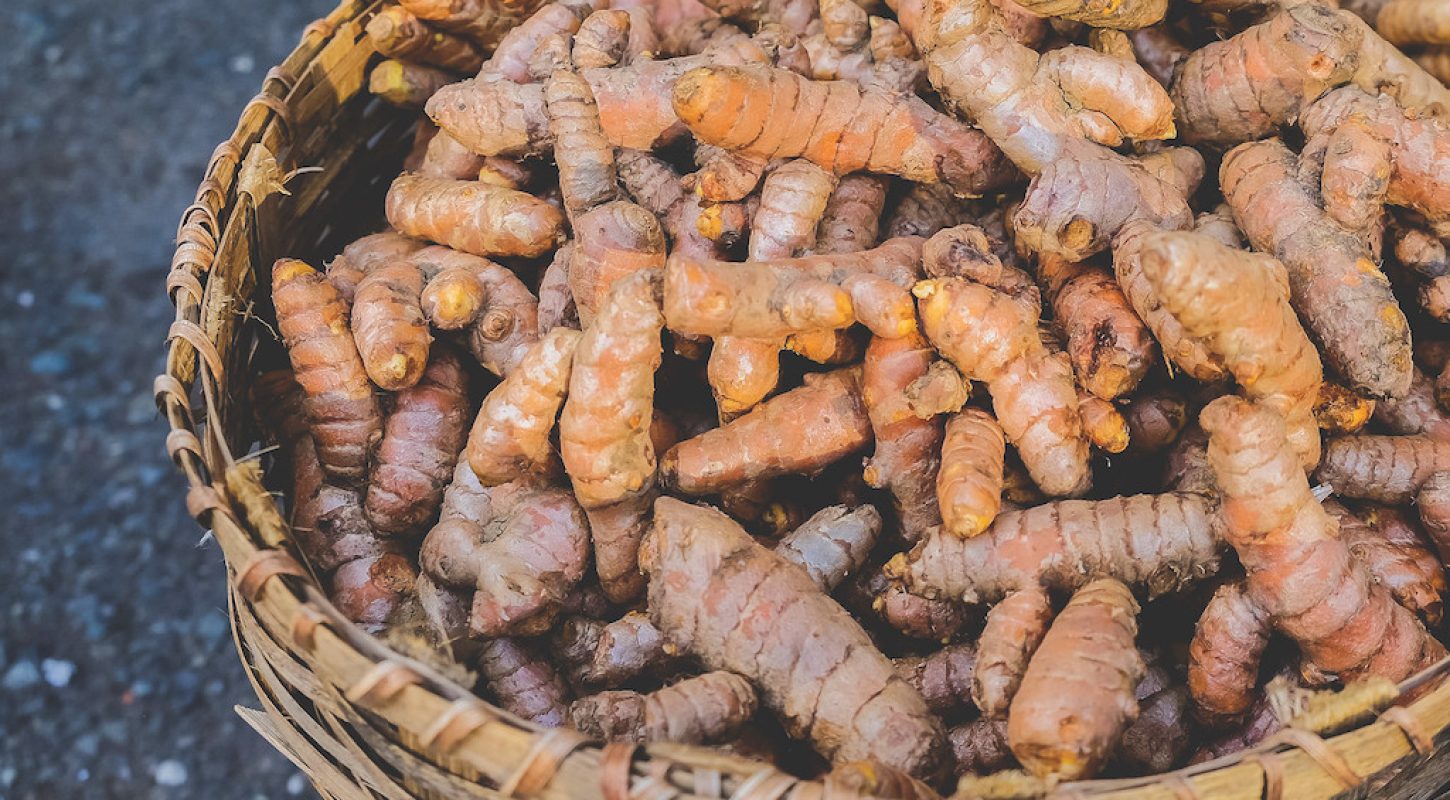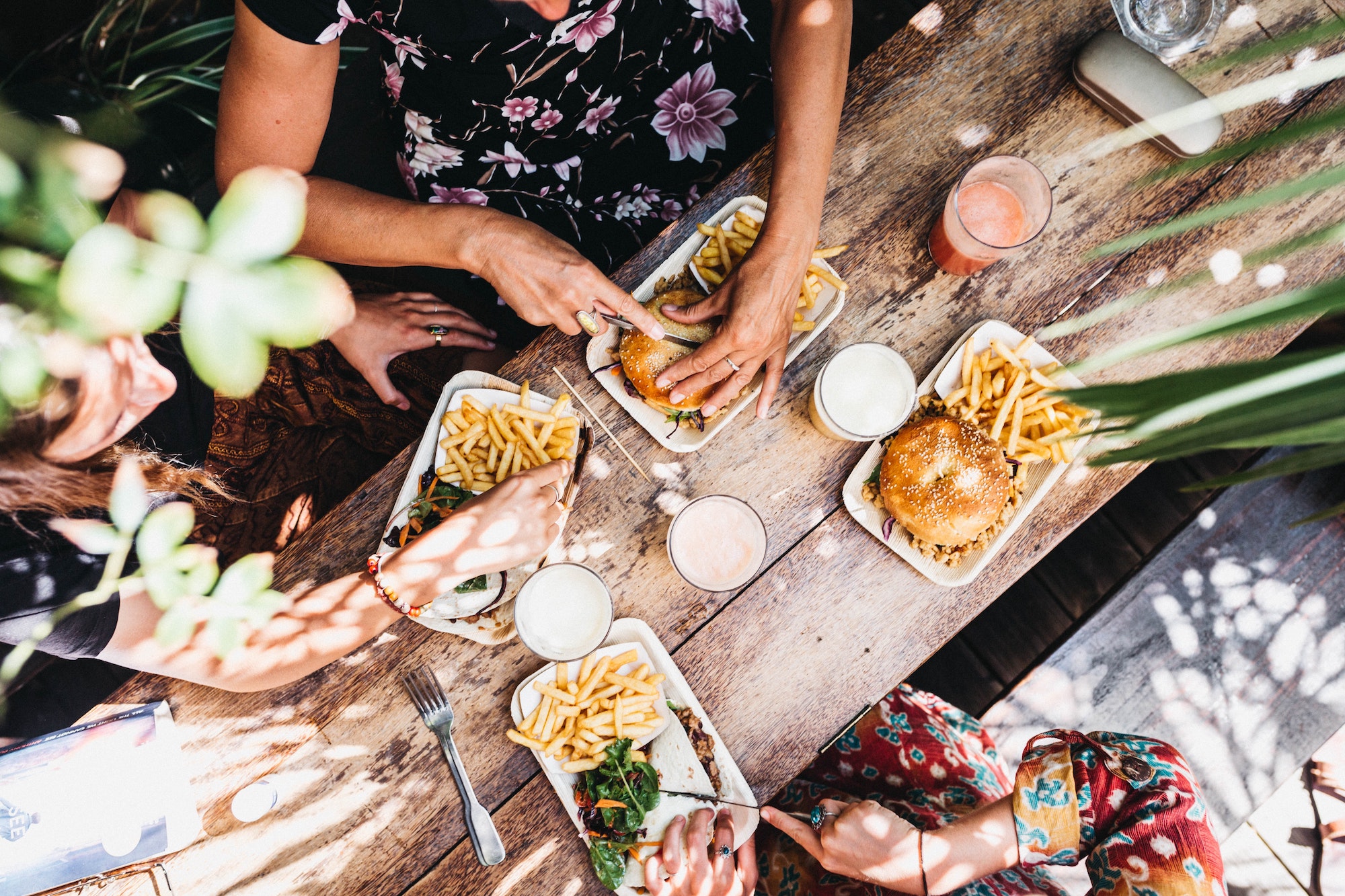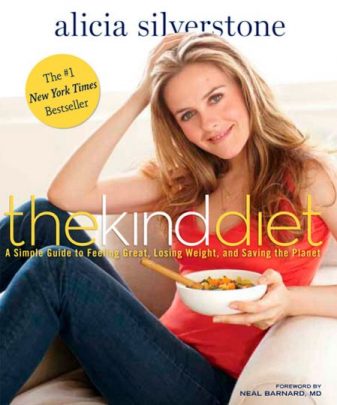Turmeric root seems to be everywhere—and there are some pretty good reasons for that. Let’s take a look at turmeric, its uses, benefits, and how it may support your daily life.
You may know turmeric as the yummy spice in Indian food that gives curry that deep flavor and beautiful yellow coloring. It’s been a staple in India for ages, but it’s also prized throughout South Asian and Middle Eastern cultures as well as in Jamaican food.
But this golden root does more than just make our food taste yummy, it has a host of health benefits as well.
What is turmeric?
Turmeric is often called a herb or a spice, but it’s technically a root of a tall, flowering Asian plant called the curcuma longa. It resembles ginger root if you’re familiar with fresh ginger. It’s got a woody-looking and nobby light brown exterior, but once you slice into the fresh root, there’s that unmistakable golden flesh.
Turmeric root is dried and powdered into its spice status where it’s added to curries and other spice blends. It’s also added to foods including cheese and mustard to naturally enhance their yellow colors.
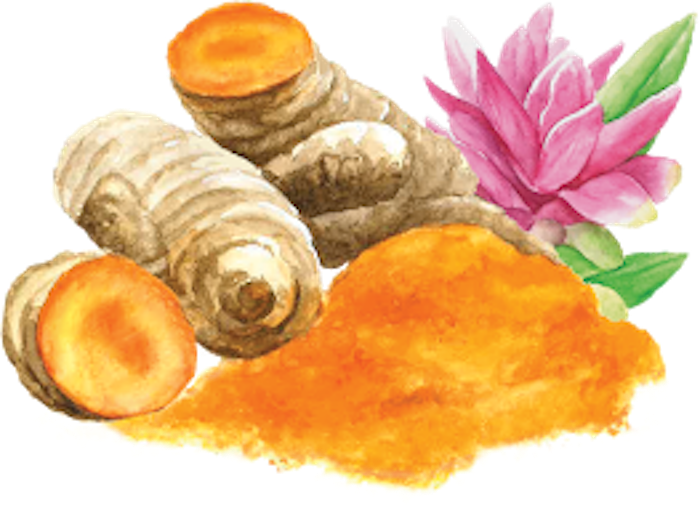
India’s Ayurvedic system of nutrition and healing has long relied on turmeric for treating a number of ailments. In recent years, studies have confirmed many of this anecdotal evidence, elevating this seasoning to supplement status because of its link to numerous health benefits.
Curcumin benefits
Even without its other added benefits, a single one-tablespoon serving or turmeric packs quite the nutrient punch: it contains 26 percent of the RDI for manganese, 16 percent of iron, five percent of potassium, and three percent of the daily vitamin C.
But it’s the compound in turmeric called curcumin that has been in the spotlight for its link to a host of health benefits.
Antioxidants
Like other foods that are rich in color, the bright golden hue of turmeric indicates that it’s packed with free-radical fighting antioxidants. This means it’s an ally in your fight against oxidative stress and may support your immune system.
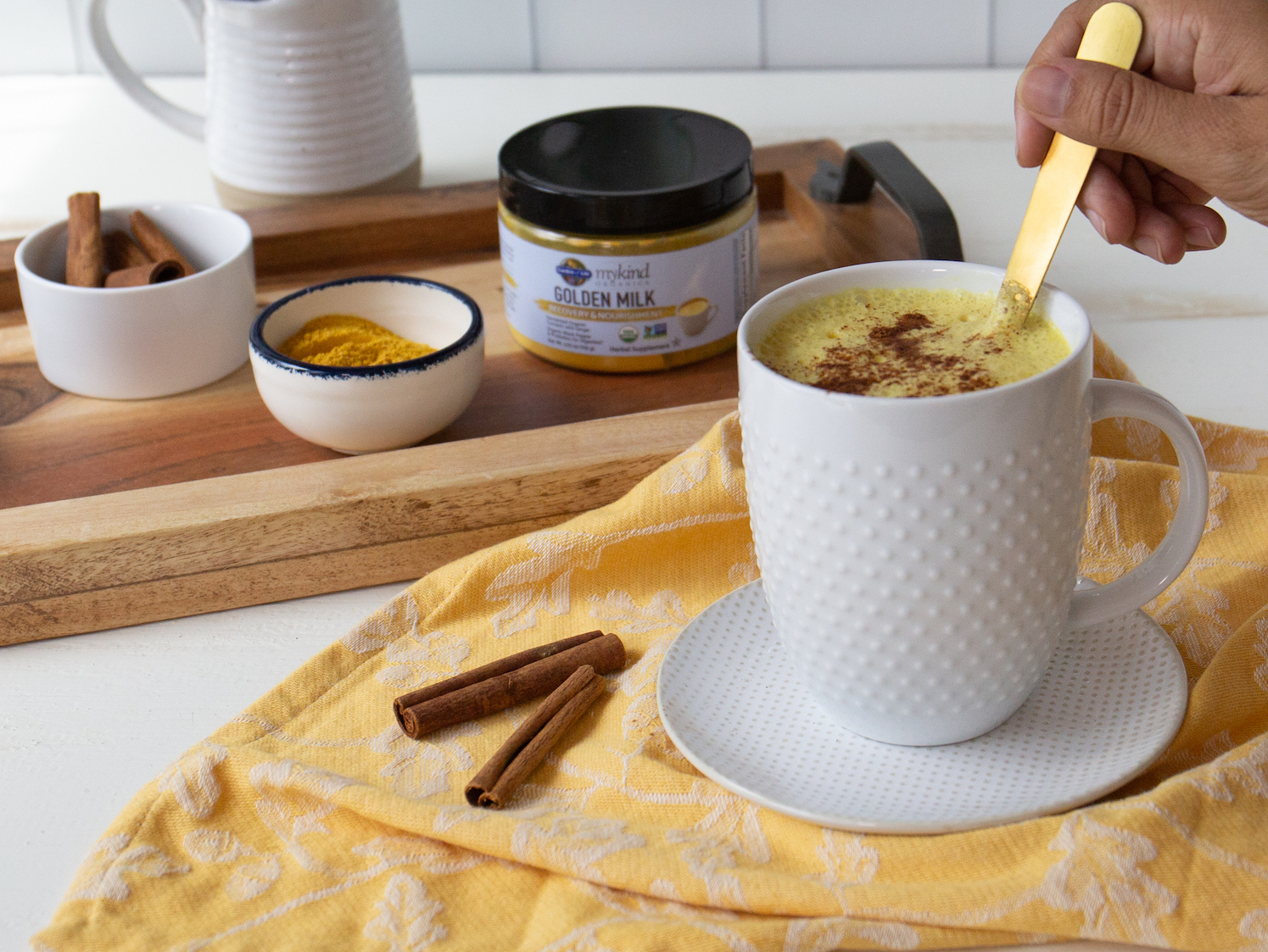
Some studies have linked turmeric’s antioxidant properties to a reduced risk of certain types of cancer including prostate, pancreatic, and multiple myeloma.
Turmeric’s antioxidant content may also support liver function and protect it from damage.
Inflammation and pain
One of the recent findings on curcumin benefits is its link to reduced inflammation resulting from arthritis. Several peer-reviewed studies have found that regular consumption of turmeric at 400 to 600 milligrams taken up to three times per day may help reduce joint pain and swelling associated with arthritis.
The reduced inflammation may be linked to turmeric’s association with pain reduction. One study found turmeric had pain-relieving benefits similar to ibuprofen for arthritis knee pain. That study was based on 800 milligrams of turmeric taken orally by capsule daily.
Digestive support
Both turmeric’s antioxidant and anti-inflammatory properties have been linked to healthy digestion. It’s long been regarded in Ayurveda as a digestive tonic. Recent studies have found there may be some good reasons to follow this line of thinking. It’s been linked to reducing inflammation in the gut, as well as the permeability of the gut lining. And it may have implications for sufferers of irritable bowel syndrome as well, but further study is needed there.
Why we don’t use hexane in Mykind turmeric
Hexane is something you may have heard of or seen on packaging. Typically, you’ll see “hexane-extracted”. It’s a not-so-healthy technique used in the food industry predominantly as a solvent in the extraction of edible oils from plant seeds, such as soybeans and canola. It is preferred in the industry because it is an efficient and cost-effective solvent that can extract a high yield of oil from raw materials, including turmeric.
Although companies say they remove hexane, there are important concerns about residual hexane still being detected in products claiming it was removed. And, this may pose health risks to some individuals. Chronic exposure has been linked with neurotoxicity affecting the peripheral nervous system. That’s scary stuff.
There are also environmental risks as hexane is derived from fossil fuels, which means its production and use are both contributing to the consumption of non-renewable resources and contributing to the climate crisis. Furthermore, as a volatile organic compound (VOC), hexane can create air pollution, including the formation of smog, which also causes health issues.
Hexane is a byproduct of gasoline, and I don’t know about you, but I don’t want gasoline coming anywhere near my vitamins.
So, I say, if you can extract without using hexane, like we do at Mykind, why wouldn’t you? It’s a no-brainer, really. Mykind does not use hexane extraction at all, making our turmeric a safer choice for you and the planet.
How to take turmeric
You can certainly eat your turmeric! All manner of curries contain turmeric. You can also find fresh juices with this powerful root.

One of my favorite ways to get my turmeric is in a MyKind Organics golden milk latte. This is a delicious treat that’s super yummy. It’s a great mid-afternoon snack or a nice way to wind down your evening. My other favorite way to get turmeric is MyKind Organics Turmeric Gummy. Tastes like apple pie, kinda! We also have the Turmeric Booster powder, which you can add to juices or smoothies for an extra antioxidant kick as well.
If you’re looking for more localized benefits, such as pain and inflammation support for arthritis or other ailments, tablets may be the way to go. Check out our Extra Strength Turmeric, Maximum Strength Turmeric, and Turmeric Pain Relief tablets.
While there are thousands of years of history of safely consuming turmeric, there are some risks, particularly if you’re taking blood thinner medication. Turmeric is a natural blood thinner and taking it in large doses alongside medication is not advised. Eating it in curry and other dishes shouldn’t be an issue. As with any supplement, it’s best to chat with your primary care physician before you start taking turmeric in large doses.
Lead image by Marco Verch via Flickr
